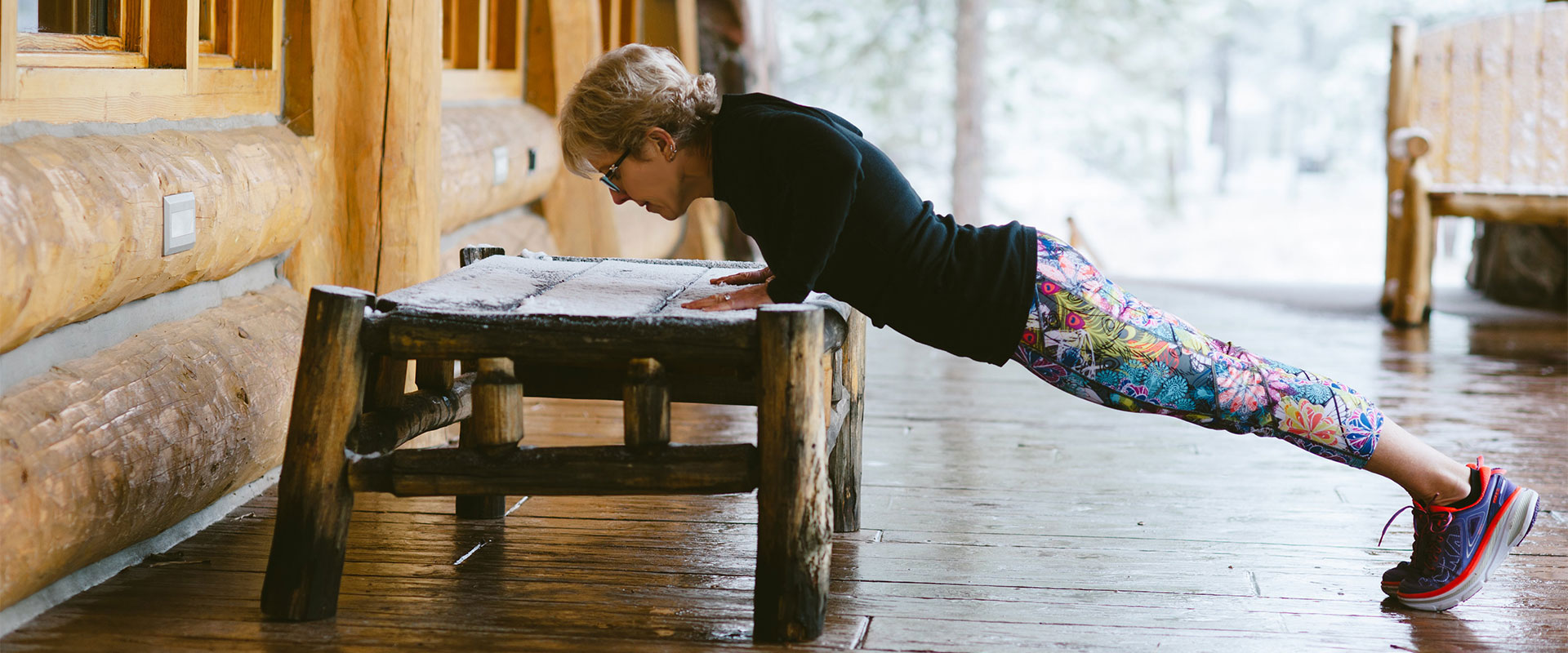A wise man should consider that health is the greatest of human blessings, and learn how by his own thought to derive benefit from his illnesses.
—Hippocrates
Head colds can be a real challenge for me. On one hand, I have no time to deal with a bout of sniffling, sneezing, and aching. On the other hand, I just can’t take cold medications due to my subtle system and small frame. Because of this, I’ve learned how to remedy my illness as quickly as possible without doping up. It turns out you can indeed beat the oh-so-dreadful symptoms of a head cold by really getting to know your mind and body. Here are my three steps.
 1. Keep yourself from getting sick in the first place.
1. Keep yourself from getting sick in the first place.
Part of the cure is to prevent the illness from growing in the body in the first place. One of the most common ways we get sick is when we let our guard down and allow stress to overtake our lives. Stress is the number one cause for contracting an illness. The winter season can be a incredibly stressful time filled with traveling plans, over-committing, financial stresses, weather changes, and more. One of the best ways to ward off stress during the wintertime is to pace yourself and make sure you . . .
 Exercise. David C. Nieman from Appalachian State University reports numerous amounts of research supporting the theory that moderate exercise causes a positive increase in immunity and a reduction in upper-respiratory illness. During and up to 3 hours after you exercise there is an increase in production and circulations of immunities that fight against illness. This study also shows that as exercise continues on a near-daily basis for 12 to 15 weeks, the subjects are 25 to 50 percent least likely to develop upper-respiratory illness compared to those with inactivity. The conclusion being that maintaining leanness and a physically active lifestyle reduces inflammation, an underlying factor in multiple chronic diseases.
Exercise. David C. Nieman from Appalachian State University reports numerous amounts of research supporting the theory that moderate exercise causes a positive increase in immunity and a reduction in upper-respiratory illness. During and up to 3 hours after you exercise there is an increase in production and circulations of immunities that fight against illness. This study also shows that as exercise continues on a near-daily basis for 12 to 15 weeks, the subjects are 25 to 50 percent least likely to develop upper-respiratory illness compared to those with inactivity. The conclusion being that maintaining leanness and a physically active lifestyle reduces inflammation, an underlying factor in multiple chronic diseases.
Walking is man’s best medicine.
—again with the Hippocrates
Eat right/boost up your vitamins. Eating healthy foods filled with vitamins, minerals, and antioxidants will keep your body healthy inside and out. The three main immunity-building vitamins you want to consume are vitamin E, vitamin C, and beta-carotene (vitamin A); antioxidant minerals, include zinc and selenium. One thing that foods high in antioxidants share is vibrant color (purple, yellow, green, red, orange, and blue). Foods high in vitamin E include, carrots, mangoes, nuts, red peppers, spinach, papaya, and broccoli. Foods filled with vitamin C include berries, broccoli, cantaloupe, cauliflower, grapefruit, honeydew, kale, kiwi, nectarines, oranges, peppers, sweet potatoes, strawberries, and tomatoes. Beta-carotene is found in foods such as apricots, asparagus, beets, broccoli, cantaloupe, carrots, corn, green peppers, kale, mangoes, turnip, collard greens, nectarines, peaches, pink grapefruit, pumpkin, squash, spinach, sweet potatoes, tangerines, tomatoes, and watermelons.
 Get plenty of rest. Our bodies and minds are completely dependent on adequate sleep. It is a time when the body can both restore and regenerate antibodies to ward off infections. According to researchers at the University of Tübingen, our bodies organize and regulate during sleep, producing antogens and hormones that fight off disease. These findings indicate a specific role of sleep in the formation of immunological memory. If you are getting appropriate amounts of sleep (approximately 8 hours a night) you are more likely to remain healthy.
Get plenty of rest. Our bodies and minds are completely dependent on adequate sleep. It is a time when the body can both restore and regenerate antibodies to ward off infections. According to researchers at the University of Tübingen, our bodies organize and regulate during sleep, producing antogens and hormones that fight off disease. These findings indicate a specific role of sleep in the formation of immunological memory. If you are getting appropriate amounts of sleep (approximately 8 hours a night) you are more likely to remain healthy.
Avoid catching others germs. Infections grow when germs multiply. Regardless of how great your immune system is, it’s important that you are helping it out by keeping germs away from you or killing them quickly once they are around. This statement was released from the Centers For Disease Control and Prevention, “Keeping hands clean through improved hand hygiene is one of the most important steps we can take to avoid getting sick and spreading germs to others. Many diseases and conditions are spread by not washing hands with soap and clean, running water. If clean, running water is not accessible, as is common in many parts of the world, use soap and available water. If soap and water are unavailable, use an alcohol-based hand sanitizer that contains at least 60% alcohol to clean hands.”
2. If you are sick, speed up the healing process.
When your body is weighted down with an unfriendly virus it is important that you do all you can to help in the healing process. A speedy recovery is your sure way to avoid the exhausting, seemingly endless symptoms of the common cold.
To do nothing is also a good remedy.
—yet more Hippocrates
Rest. Rest can help keep us from getting sick but it can also help us heal more quickly. Make sure you are getting a good night’s sleep, adequate enough to heal your body. Researchers from Harvard Medical School suggest avoiding caffeine, alcohol, nicotine, and other chemicals that interfere with sleep. They recommend you turn your bedroom into a “sleep inducing environment.” A quiet, dark, and cool environment can help promote sound slumber. Establish a soothing pre-sleep routine: Ease the transition from wake time to sleep time with a period of relaxing activities an hour or so before bed. And to be sure to keep your internal clock set with a consistent sleep schedule.
 Drink plenty of fluids. Increasing the amount of fluids you consume in a day’s time will help to flush out any toxins in your system that seem to by hijacking your health. According to The Mayo Clinic, when you are sick it is recommended to increase the amount of fluids you consume, particularly water. Drink approximately 9 glasses a day to ensure you are cleansing your system.
Drink plenty of fluids. Increasing the amount of fluids you consume in a day’s time will help to flush out any toxins in your system that seem to by hijacking your health. According to The Mayo Clinic, when you are sick it is recommended to increase the amount of fluids you consume, particularly water. Drink approximately 9 glasses a day to ensure you are cleansing your system.
Boost up your vitamins. Give yourself the extra help it needs. Take advantage of all the nutrients you can at this time. Your foods and vitamins are your allies in health. The Mayo Clinic says there is no “cure” for the common cold but increasing your vitamins and minerals will certainly shorten the length of a cold and build up your immune system so you can fight germs in the future.
Keep a positive attitude. Keep your chin up kiddo. Research suggests that having an optimistic outlook towards the everyday challenges of life leads to increased health, peace of mind, and a longer life. The Mayo Clinic reported a study involving 800 people that were observed for over 30 years after completing a personality test that indicated their attitude to life. The pessimists were found to have almost 20 percent more likelihood of dying early than the optimists.  A follow-up study of 7,000 participants showed that out of every 100 participants, the 25 most pessimistic, anxious, and depressed had a 30 percent greater chance of dying young, compared with the most optimistic, least anxious, and least depressed 25 in the group. The optimists in the Mayo surveys said they had fewer health problems and fewer difficulties with work or daily routines. They experienced less pain, had more energy, were comfortable in social situations, and enjoyed social activities. The optimistic study participants also said they were generally happier, calmer, and more peaceful than their pessimistic counterparts. So needless to say, a positive outlook is a healthier outlook.
A follow-up study of 7,000 participants showed that out of every 100 participants, the 25 most pessimistic, anxious, and depressed had a 30 percent greater chance of dying young, compared with the most optimistic, least anxious, and least depressed 25 in the group. The optimists in the Mayo surveys said they had fewer health problems and fewer difficulties with work or daily routines. They experienced less pain, had more energy, were comfortable in social situations, and enjoyed social activities. The optimistic study participants also said they were generally happier, calmer, and more peaceful than their pessimistic counterparts. So needless to say, a positive outlook is a healthier outlook.
3. Prevent yourself from relapsing.
How many times have you started feeling great after a long cold and on the first day out you find yourself returning home to fight the illness once again? So incredibly frustrating. But so incredibly avoidable.
Continue your speedy recovery routine.
- Adequate rest
- Drinking plenty of fluids
- Boost up your vitamin intake with supplements and food
- Stay positive
 Pace yourself. Baby steps. Instead of heading out for your 10-mile run that you normally accomplish 5 days a week, maybe try a nice 2-mile walk and see how you feel. Once you’ve caught a cold, intense exercise can make symptoms worse or even cause relapse. Scientists from the University of Illinois reported a study in which included two groups of rodents. The first group were infected with a flu virus and remained sedentary until the virus was gone. The second group were infected with a flu virus and exercised while sick. In general—and “this is true in both mice and men,” says Jeffrey A. Woods (one of scientist involved in the study)—He found the mice who had the flu virus and exercised developed an overabundance of helper cells. This overabundance killed off the virus fighting cells so they remained ill for a much longer period of time unlike the non-active mice who were able to heal quicker. In essence, too much activity when infected with a virus can be detrimental to health and recovery.
Pace yourself. Baby steps. Instead of heading out for your 10-mile run that you normally accomplish 5 days a week, maybe try a nice 2-mile walk and see how you feel. Once you’ve caught a cold, intense exercise can make symptoms worse or even cause relapse. Scientists from the University of Illinois reported a study in which included two groups of rodents. The first group were infected with a flu virus and remained sedentary until the virus was gone. The second group were infected with a flu virus and exercised while sick. In general—and “this is true in both mice and men,” says Jeffrey A. Woods (one of scientist involved in the study)—He found the mice who had the flu virus and exercised developed an overabundance of helper cells. This overabundance killed off the virus fighting cells so they remained ill for a much longer period of time unlike the non-active mice who were able to heal quicker. In essence, too much activity when infected with a virus can be detrimental to health and recovery.
By Sarah Stevenson
